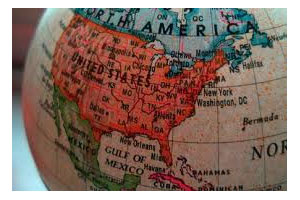EPA releases confidential US farm data

The National Pork Producers Council is extremely troubled by the US Environmental Protection Agency’s release earlier this month to several activist groups of personal information on US hog farmers and on other livestock and poultry farmers and, possibly, business-confidential data on their farms.
EPA in early February released raw data from farms in 30 states, including, in some instances, farmers’ home addresses, phone numbers and e-mail addresses as well as information on employees of operations, to the Natural Resources Defense Council (NRDC), Earth Justice and the Pew Charitable Trusts under Freedom of Information Act requests the groups filed.
“The release of data containing personal and confidential information is extremely troubling; we feel betrayed,” said NPPC President R.C. Hunt, a hog farmer from Wilson, N.C. “We are very concerned for farmers and with the ability of those opposed to modern livestock and poultry farms to manipulate that data to advance their extremist agenda.”
EPA gathered the information despite being forced last year to drop a proposed reporting rule for Concentrated Animal Feeding Operations (CAFOs) because of concerns about the privacy and biosecurity of family farms. The regulation was the result of a 2010 “sweetheart” deal the agency entered with environmental groups, including NRDC. The deal was struck while EPA and livestock and poultry producers were in the middle of a lawsuit brought by NPPC over EPA’s 2008 CAFO rule, which required large livestock and poultry operations that propose to or that might discharge into waterways to obtain Clean Water Act (CWA) permits. A federal appeals court ruled that the CWA requires permits only for farms that actually discharge.
In dropping the reporting rule, EPA indicated it still wanted to collect data on CAFOs to “more effectively carry out its CAFO permitting programs on a national level and ensure that CAFOs are implementing practices to protect water quality and human health.” But the agency gathered the data from state water agencies without informing them about its intention to share the information with outside groups, including through a searchable national database. NPPC is reviewing the files that EPA released to better understand the scope and content of the data.
“What’s ironic,” Hunt said, “is that, in the name of transparency, EPA released information in secret and violated the privacy rights of farmers across the country.”







